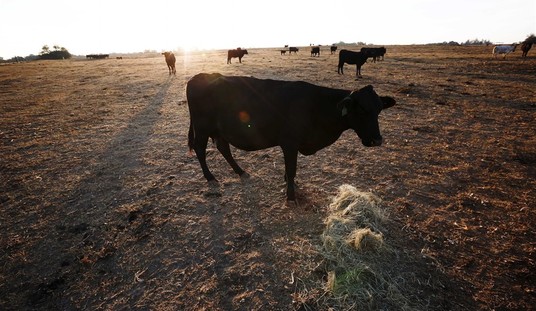This sounds like a Very Big Deal, and it’s not small potatoes by any means. BuzzFeed’s Evan McMorris-Santoro reports from the DNC summer meeting in Minneapolis that Barack Obama’s defunct 2012 campaign has transferred control of their e-mail list to the Democratic Party. The list, which has robust targeting data, allowed Obama to create a fundraising juggernaut, and Democrats are anxious to have history repeat itself:
DNC officials declined to discuss the size of the list, but DNC digital director Matt Compton’s excitement at owning the list that helped Obama raise “more than $500 million” last cycle according to the Wall Street Journal was palpable in an interview at the DNC’s Summer Meeting. DNC officials said the list was the “largest political email list in the world.”
“The email list will help the DNC expand its reach online, build support for a new generation of leadership, and test new tactics for activating Democratic voters in future elections,” he said. “Email is critically important tool for fundraising, grassroots engagement in support of key issues, and setting the record straight about the Republican candidates as well.”
The DNC formally acquired the list earlier this month, and has already used it to send out an email aimed at boosting support for Obama’s clean power proposal. The DNC has used the list before, but only after messages were approved by the campaign organization that owned it. Now, the DNC is free to use it as they please.
What sets the list apart is its enhancements. More than just a huge file of emails, the Obama 2012 list includes information about which specific type of appeals a supporter responded to, how much they donated and when, how they prefer to be contacted, and other granular data that helped make Obama’s digital grassroots outreach the best over two separate campaign cycles.
While this seems like quite a coup, one has to wonder why it took this long for Obama and his team to share the data. It’s not necessarily a big problem for a primary that most thought would be a coronation for Hillary Clinton, but at some point the DNC would need to freshen things up for 2016.
Did the decision to share it now have anything to do with Hillary Clinton’s woes and Democratic panic over her performance? Hmmmm. It sure does make it easier for other candidates who have been Biden their time — cough, cough, excuse me, biding their time — to come up to speed quickly, if necessary. And it’s certainly looking a lot more necessary these days.
This does give the DNC a running start on its 2016 efforts, but how much of a running start? OFA has not exactly been active since the end of the 2012 cycle; they mainly sat out 2014, and appear to be morphing into Obama’s post-presidential activist corps. Three years is forever when it comes to mailing lists and targeting data; people move, they change jobs and e-mail accounts, and their life circumstances change, too. What motivated voters in 2012 didn’t motivate them in 2014, and almost certainly won’t in 2016, either. There should be enough left in the tank to make an impact, but how much of one?
Besides, the Democrats seem to be falling into the same trap that Republicans did in 2012, assuming data was the determining factor. The problem for the GOP in 2012 was Barack Obama and Mitt Romney, and in 2016 Democrats seem unable to prevent the same lack of connection with their candidates. Howard Fineman calls this field the last gasp of the 1960s, and he’s correct:
Democrats like to brag that they have been in continuous operation for two centuries, longer than any other major political party in the free world.
It certainly feels like it.
With the possible (perhaps even likely) entry of Vice President Joe Biden, 72, the contest will become an old-fashioned tale of palace intrigue, as he and Hillary Rodham Clinton maneuver for the favor and endorsement of the president.
And a three-way race with Sen. Bernie Sanders (I-Vt.) would feature the three sub-brands that have dominated and defined the Democratic Party on campus and in the country since the 1960s.
It doesn’t matter how effective that e-mail list may still be — this lineup simply won’t energize voters in any way close to 2008 or even 2012. Fineman laments that Obama was supposed to be the start of “a new day and a new era,” but devastating losses in the Obama era has left Democrats with no bench, and only holdovers from the country’s most self-absorbed generation left on stage.
The GOP does not have that problem, unless they inflict it on themselves. Republicans have a number of young, experienced, capable candidates to offer as a sharp contrast to the Summer of Love retreads — Scott Walker, Bobby Jindal, Ted Cruz, and perhaps especially Marco Rubio. That may not win them the youth vote, but it would at least help Republicans compete for it.
The e-mail list transfer certainly isn’t bad news for Democrats, but it’s no panacea, either.








Join the conversation as a VIP Member